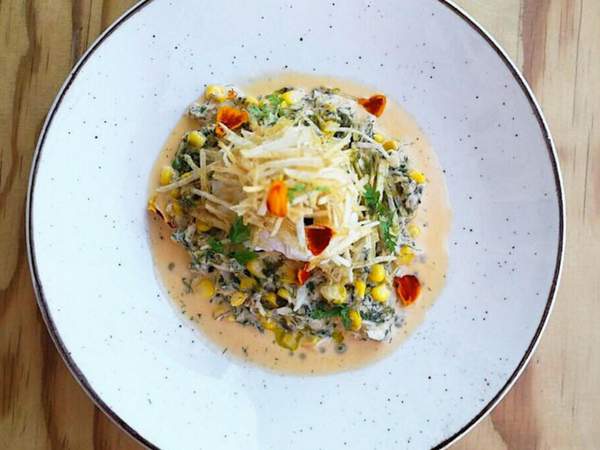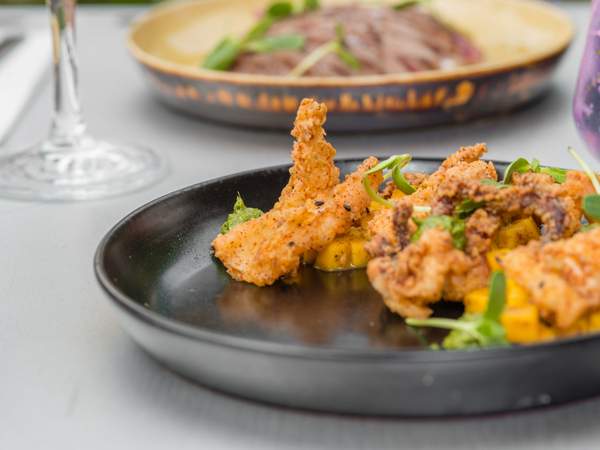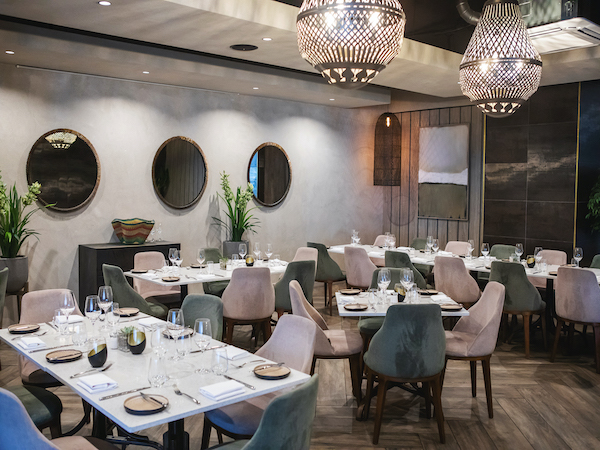News
8 dishes celebrating green-listed fish across South Africa
Friday, May 25th, 2018It’s no secret that South Africans love seafood. Despite a great coastline, however, there unfortunately isn’t an abundant supply of seafood. That means we need to keep an eye on the types of fish we’re eating, as well as the amount we’re eating. The WWF-SASSI – the WWF’s South African Sustainable Seafood Initiative – tirelessly works to educate and raise awareness of our depleting fish stocks, and have made it much easier to do so with its easy-to-read traffic light system – meaning the best choice is those listed as green, think twice about those listed orange and don’t buy those listed as red. But where can you find sublime dishes made with sustainable seafood?
Cape Town and beyond
La Tête (City Bowl)
As one of the winners of WWF-SASSI’s trailblazer awards for 2017, La Tête’s Giles Edwards often celebrates the lesser-known fish. His famous fried fish sandwich often uses hake, but recently Giles has been a fan of a simpler preparation of hake. It’s pan fried and served alongside changing accompaniments like a punchy salad of samphire and cucumber.
Ocean Jewels (Woodstock)
Julie Carter, another of the winners of WWF-SASSI’s trailblazer awards for 2017, cooks the way we would all love to – with honesty and heart. Her seafood-focus eatery in the Woodstock Exchange specialises in a concise menu of fuss-free seafood. Dishes change regularly but you can rely on her to produce something deliciously fishy – this angelfish salad with potato wedges looks especially promising.
Seabreeze (City Bowl)
Sometimes you can’t beat a simple dish of fried fish and chips, and Seabreeze on Bree knows this. The restaurant is meticulous in sourcing green-listed fish to serve on its seafood-based menus. The fish-and-chips offering uses hake, and there are other interesting green-listed fish available on the menu such as South African line-caught carpenter. It’s served with a pea veloute, new potatoes and chorizo.
Wolfgat (Paternoster)
With the ocean as his literal backyard, WWF-SASSI’s 2015 trailblazer award-winner Kobus van der Merwe has an enviable supply of green-listed fish at his disposal. His menu at Wolfgat changes regularly, depending on what he’s foraged or sourced for the day, but it always features sustainable seafood. His latest menu is a seafood celebration, but this dish of snoek glazed with moskonfyt and served with sour fig nectar and tomatoes is nothing short of a sustainable masterpiece.
Durban
9th Avenue Bistro (Morningside)
Another winner of WWF-SASSI’s trailblazer awards for 2017, Graham Neilson and his team at 9th Avenue Bistro always have sustainable fish on their menu. The menu changes quite often but this dish of queen mackerel (or Natal snoek) is available at the moment and it’s quite something. A simple roasted piece of the queen mackerel is served with a lemon, thyme and spring onion risotto with heritage tomatoes, citrus mayo and a mild curry beurre blanc.
Johannesburg
The National (Parktown North)
The hero of this fish dish is snoek, which the team has turned into a hearty chowder. The base consists of snoek, corn and fennel, and is topped with a poached egg and skinny fries. The sustainable fish comes from a local supplier in Cape Town, who transports it up to Johannesburg.

The hearty snoek chowder from The National. Photo supplied.
Urbanologi (Ferreirasdorp)
Head chef Jack Coetzee is known for cooking up a number of dishes featuring seasonal, sustainable ingredients. His fish dish at the restaurant uses chokka (a sustainable squid) from St Francis, which is crumbed and served with a mango salsa and lime purée.

The chokka dish at Urbanologi. Photo supplied.
Pretoria
Restaurant Mosaic at the Orient (Elandsfontein)
We are constantly in awe of the creative, considered dishes that Chantel Dartnell comes up with and this mackerel dish featured on her latest menu embodies that. The Atlantic mackerel is prepared ‘rollmop-style’ and is lightly cured in a white balsamic, ginger and fennel marinade. It’s then served alongside a punchy dill-and-lemon yoghurt mousse, alongside a pickled fennel salad and pickled and fermented radishes.
Stay tuned for the announcement of the winner of the 2018 Eat Out Woolworths Sustainability Award.
About the sponsor
For a number of years Woolworths has remained deeply committed to procuring all their seafood from sustainable fisheries and their products from responsible farming operations and suppliers. Today 61% of commercially important assessed marine fish stocks worldwide are fully fished, and 29% are overfished. Given the importance of fish as a vital source of protein for billions of people, the state of the ocean’s fish stocks and marine ecosystems is a worldwide concern. Woolworths has shared this concern for a number of years. They are therefore committed, through their Fishing for the Future Programme, to procuring all their fish from sustainable fisheries and responsible farming operations, and are also working with local and international seafood sustainability awareness and certification programmes, including the Marine Stewardship Council (MSC), the WWF-SA’s Southern African Sustainable Seafood Initiative (WWF-SASSI) and the Aquaculture Stewardship Council (ASC) to ensure that all their fish is responsibly sourced and traceable back to the ship that caught it or the farm that raised it.












